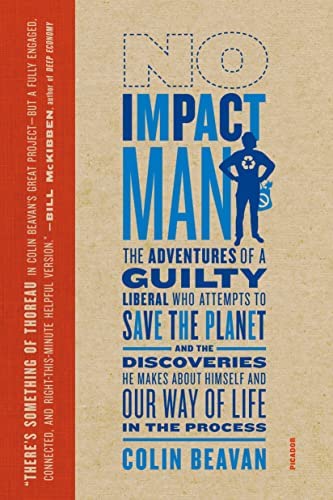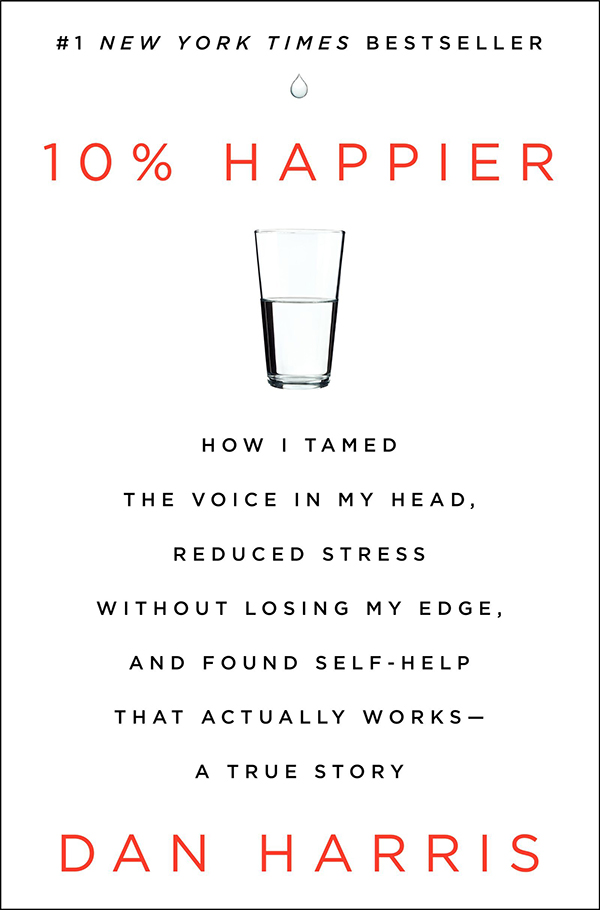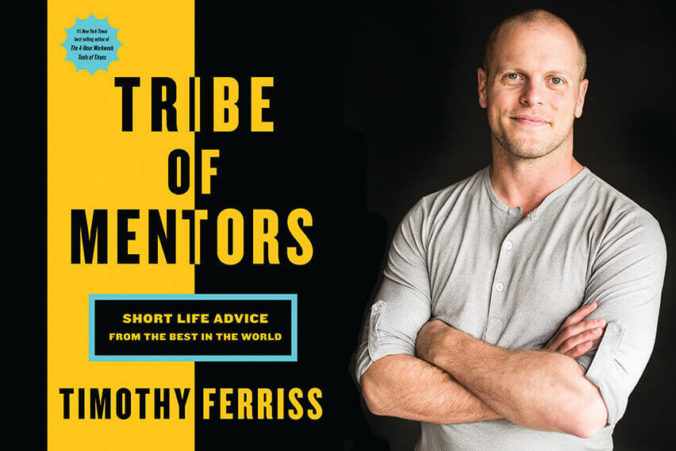Colin Beavan knew he didn’t have all the answers, he just knew he wanted to try to make a difference. He set out on a quest to live within his values, which for him meant trying to live with as little waste and negative environmental impact as possible. He invited a documentary film crew and reporters into the journey he took with his family, a level of public vulnerability I find truly admirable.
Here are my Ten Key Takeaways from the documentation of his year-long No Impact Project:
- The point is to try. The point is not to fix everything, to heal the world, to solve all the problems. The point is to mindfully try out the things you really believe in and see what happens. How do you want to be remembered when you die? As someone who ignored the problems, or as someone who tried to make a difference?
- Every choice you make matters. Even if it doesn’t feel like it matters, it does. It doesn’t necessarily matter in the sense that buying one newspaper is going to send us all past the global warming 2°C tipping point. But if we choose to not buy that cup of expensive coffee in a disposable cup with a plastic lid and straw, it can make a change within us. We can notice what that change feels like. Maybe that change feels good and we want more of that change. And, who knows, maybe one of our friends might notice our behavior change, which might inspire them in some way, and so a domino effect takes place. Beavan points out that “the straw that broke the camel’s back” is just one straw; it took thousands of straws before it to finally be that one straw that broke the camel’s back, but each one of the straws were equally important to the process. Every choice matters.
- We need a culture change. We need a way-of-living change. It’s very hard as an individual to change an entire system (say, how we get our power). But it’s not so hard for an individual to change their behaviors. You just have to make a choice.
- New technology is only part of the answer. Buying electric cars will still leave us in traffic jams. Powering our televisions with solar power still leaves us frittering away our lives being mildly entertained by watching other people play pretend. New technology is definitely part of the answer in the quest to save humanity, but it’s also up to each of us to decide how we want to live.
- We are victims of Stasis Through Obfuscation. Corporations have an incentive to make things confusing; if we can’t figure out which type of product is really the most environmentally conscious, then an easy answer is to give up trying, pick one, and move on. It is easy to become paralyzed by conflicting information. In my life it has gone like this… One article says eating meat is bad and takes up way more resources and creates more greenhouse gas than alternatives, like tofu. Another article points out how tofu is processed and wrapped in plastic and, thus, is not an eco-conscious choice. So am I supposed to buy tofu or not? This is all a bit challenging to figure out, and now I’m feeling stressed and drained. Time to order some pad thai. If this sounds familiar, it’s because it’s the norm. The interests of the businesses behind all these products want it to be confusing so that we give up trying and just buy whatever is most convenient. It’s important to remember that making change is hard and the way that things are right now is not our fault, but there is something we can do about it.
- Set rules for yourself to make change easier. One thing I love about Beavan’s No Impact Project is that he set rules for himself and his family, guidelines that helped define the project and aligned with his actual values. These were rules like “we will only eat food with ingredients sourced from within 250 miles” or “no more buying disposable anything.” The rules we create for ourselves can vary. The point is not to try to follow his rules. He wasn’t arguing we should all live like “No Impact Man.” The point is to examine earnestly your own life, identify some ways you can do less harm and do more good, and then set rules for yourself to follow. The rules help make all the little decision-making processes we have to go through in our lives easier. If you give yourself a rule of “no more buying disposable anything,” then you can instantly look at any product and know whether or not you can or should buy it–if it’s wrapped in plastic, it stays on the shelf.
- As tools we have Individual Action and Collective Action. We can make changes in our own lives and we can work together in teams. We need to do both. These are not mutually exclusive. It’s not enough to lobby politicians, and it’s not enough to stop eating meat. We need more of both of these things.
- Happiness and The Good Life are not the same as economic growth. Colin illuminates how economic growth, the thing many of us contribute to with our jobs and our spending, does not necessarily equate to happiness growth. Happiness, fulfillment, contentment… pick your word. Over the last 200 years of industrial and technical innovation, consider that we may already have a lot of the technology we need. We may not really need a new iteration of the PlayStation. What if those computer engineers were instead working on ways to bring education or sanitation to those who don’t have access to it? In our own lives, how long do we pursue our own financial growth before we stop and accept that we have enough? If we realize we don’t need all the stuff, how does that impact our “enough number”? We need to find ways to have happier people as well as a happier planet.
- Find your own balance between impact reduction and happiness. Every person will hit a point at the bottom of minimalism where they are not willing to go below when faced with a convenient alternative. Beavan hits this point when his child has soiled multiple rounds of bedsheets in the middle of the night, and he breaks his own rule and uses the washing machine in his building. If we all tried a version of the No Impact Project, most of us would end up with a similar breaking point. That is OK! The goal is not about avoiding all indulgences and completely depriving oneself; it’s about stripping life back to its essentials in order to see clearly what we really need and what we’re OK letting go of. We can use asceticism as a temporary tool to bring clarity to what we truly need and desire.
- What’s good for the planet also happens to be good for us. It sounds obvious, but many of us, myself included, still end up making choices to the contrary. If we take the stairs instead of the elevator, we have the double benefit of avoiding electricity use and improving our physical health. If we choose to eat only local food, we get the two-pronged bonus of minimizing carbon emissions and better body nourishment. If we decide to get rid of our television, we both save on power and make room for more soul-enriching activity. Improving your life and saving the planet are one and the same.
FAVORITE PASSAGES FROM THE BOOK “NO IMPACT MAN”
ON HUMBLY STUMBLING FORWARD INTO THE UNKNOWN
The idea was not to become an environmental expert and then apply what I’d learned. The idea was to start from scratch—with not a clue about how to deal with our planetary emergency—and stumble forward. To see what I could find out. To see how I evolved.
ON GROWTH VS. HAPPINESS
Growth in gross domestic product, the common wisdom says, is a good thing that all of us should work for. A growing GDP is a sign that we are all doing well, it is said, an indicator of the common good. But as I do my research, I read that the more people get cancer, the more the health sector grows. The more people get divorced, the more the legal sector grows. The more Hurricane Katrina’s there are, the more the emergency services sector grows. Should our goal simply be to blindly “grow our economy,” or should we find ways to ensure that it grows in ways that both improve the quality of life and protect our habitat? Growth in our economy doesn’t necessarily mean that there’s more money in the average person’s pocket, or that the average person is more content. It doesn’t necessarily mean we are all going on more holiday or getting more jet skis. Growth in the economy could just as easily reflect the average person spending his life savings to deal with some terrible family catastrophe. It could also mean that we are all working 10 hours a day instead of eight, that we are all spending twice as much money on our kids at Christmas because we feel guilty for not spending enough time with them.
Since 1950, the U.S. gross domestic product has grown 550 percent. Want to know how much measures of happiness have increased? Just about zero. So, in the service of a healthy economic system, many of us no longer live near our families but cross country to be near jobs. Some of us work two jobs, get more stuff, take only two weeks holiday a year while Europeans take seven. How much satisfaction do we get for all that?”
ON CONVENIENCE
Do we work for and pay for all this convenience in order to live our lives, or do we live our lives in order to work for and pay for all this convenience?
ON STRIKING A BALANCE
I would have to find, over the coming year, some sort of middle path that involved neither the self-indulgence of the unconscious consumer nor the self-denial of the ascetic. I wanted to find a way to thoroughly enjoy the fruit without killing the tree. I wanted to find a way of living on the planet’s dividends instead of its capital. … I simply wanted to see if we could learn to behave like good guests while enjoying a good life.
NOW WHAT?
Toward the end of the documentary film “No Impact Man,” Colin Beavan is seen wrapping up his yearlong project by getting out into the community. He speaks to 200 NYU students who are going to try living with no waste for a week. He speaks to different classes of elementary and high school students, adapting his message of mindful consumption age appropriately. He visits the garbage processing area in the Bronx, a community that receives much of New York City’s garbage. He goes to meet with his congressperson to lobby for more environmental policy. He volunteers with a group helping to repopulate with New York water systems with shellfish. He volunteers with another group that takes care of the already-planted trees scattered throughout New York City.
He mentions how one of the most common questions he gets asked is, “What’s the one thing I should do? The one thing I should change? Should I stop disposing of plastic bags? Should I start eating organic only?” His answer: “If there’s only one thing you’re going to change, go volunteer with an environmental organization.”
As he gets out into the community, he realizes that doing one year of the No Impact Project pales in comparison to what so many other people are doing, dedicating their entire working lives to environmental causes. He contends that the most profound impact one can have with a single act is to go volunteer with a group of people doing environmental work. It is there that not only can one do some good with their time and energy, but also that one can connect with other people, learn from them, and start to build up a sense of community.
I’m convinced. If someone can go for a year producing almost zero waste, shutting off their electricity, only buying food from their local area, and washing their clothes by foot in their bathtub, and their takeaway after that whole experience is that the best thing I can do is go volunteer with an environmental group, I’m listening to that wisdom.
Join me!


